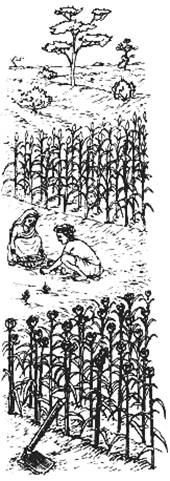/topics/water-management
Water Management
Water and Poverty - A case of watershed development in Andhra Pradesh - Asian Development Bank
Posted on 17 Sep, 2009 02:32 PMThis report published by the Asia Development Bank includes a case study that attempts to understand the potential of watershed development in addressing the issues of poverty alleviation. The important issues in this regard include:
- Assessing the linkages between watershed development and rural livelihoods & poverty,
- Type and nature of benefit flows accruing to various sections of the community
- Challenges in making the watershed programme pro-poor and sustaining it in the long run.
How to measure water percolation rate
Posted on 15 Sep, 2009 04:53 PMTo measure how fast water percolates into the soil, you need to measure the time it takes for a specific amount of water to soak into a specific area of soil. The easiest way to do this is to get a length of cylindrical pipe that is sharp enough to push (or hammer) into the soil at one end. Mark it with two lines – one is the line to which you insert it into the soil, and the other is the line to which you fill the water.
How to measure slope and mark contours
Posted on 15 Sep, 2009 04:43 PMYou can measure slope by making use of gravity. Find a protractor for measuring angles. Attach a straw across the straight edge of the protractor.
Watershed scale planning- Application of rainwater harvesting techniques
Posted on 15 Sep, 2009 04:20 PMThe first project was conducted by the BAIF Development Research Foundation in the Hassan District of Karnataka. They created a linked network of 350 farm ponds covering 700 hectares of the watershed.
The how and why of tank restoration
Posted on 15 Sep, 2009 02:19 PMWhere possible, it is much more cost effective to restore existing tanks, than to build new tanks. Restoration can involve silt removal to increase the storage capacity of the tank and reduce evaporative loss. The silt can be used to restore the earthen bund, and any remaining silt can be applied to nearby farmland. The outflow structure can also be improved.
Agronomic measures in dryland agriculture: An overview
Posted on 15 Sep, 2009 10:39 AM
Soil and water conservation measures consist of agronomical and mechanical methods. Agronomic methods are supported with mechanical measures where land slope exceeds permissible limits and runoff gains erosive velocities.
The following boxes explain the nature of agronomic measures which are essential in inter-bunded or terraced areas. These practices enhance the utility value of all kinds of mechanical structures.
How to catch rainwater where it falls - An intoduction
Posted on 14 Sep, 2009 04:39 PMPerhaps you are a farmer and you want to practice good water and soil management for your crops and trees, or you own some land and you want to manage it carefully to recharge the groundwater. You may be focusing on what you can do with your own land, or wondering what your community can do, or you may even be thinking at the watershed level.
Rural schools in Rajasthan -The Barefoot College experience
Posted on 12 Sep, 2009 04:27 PM| In 2003, the Ministry of Water Resources sanctioned a pilot project to harvest rainwater in 100 rural schools across 13 states in the country through 20 village Community Based Organizations (CBOs). The project aimed to provide adequate water for drinking and sanitation by collecting rainwater from the roof tops of school buildings and storing this in underground water tanks. The Barefoot College, Tillonia outlines the simple and low cost traditional technique which can serve as a permanent sweet drinking water source for school children in rural areas. |
Sisyphean labours - Domestic water supply in the central-western Himalayas
Posted on 11 Sep, 2009 01:11 PMThis paper by the People's Science Institute informs that domestic water supply, mistakenly referred to as drinking water supply, is a state subject under the Indian constitution. However, policies and programmes are ususally set within a national framework as a part of the national five year plans. Domestic water supply programme performance in Himachal Pradesh and Uttarakhand have followed national trends.







